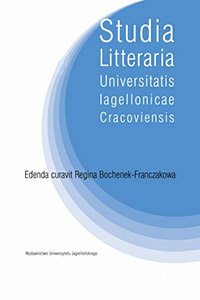Classical Persian Epics – Conscious Authorship and Tradition
Classical Persian Epics – Conscious Authorship and Tradition
Author(s): Anna KrasnowolskaSubject(s): Studies of Literature, Ancient World, Theory of Literature
Published by: Wydawnictwo Uniwersytetu Jagiellońskiego
Keywords: Persian epics; tradition; innovation; authorship;
Summary/Abstract: The article is exploring the concept of authorship in early (10th–11th century A.D.) classical Persian epic poetry, on the examples of its three representative works: Ferdousi’s Šāhnāme, Asadi’s Garšāsp-nāme and Gorgāni’s Vis-o Rāmin. As the analyzed passages show, all three authors, in spite of their works being based on the existing, traditional sources, have a strong sense of their individual authorship. They understand their role as saving pre-Islamic Iranian patrimony from oblivion, as a modernization of literary language and style and finally, as a search for their personal fame. An attempt at discovering inner senses of the inherited literary material, beyond its external meaning, seems to be another aspect of authorial creativity, as perceived by Ferdousi and Gorgāni.
Journal: Studia Litteraria Universitatis Iagellonicae Cracoviensis
- Issue Year: 10/2015
- Issue No: 3
- Page Range: 195-204
- Page Count: 10
- Language: English

